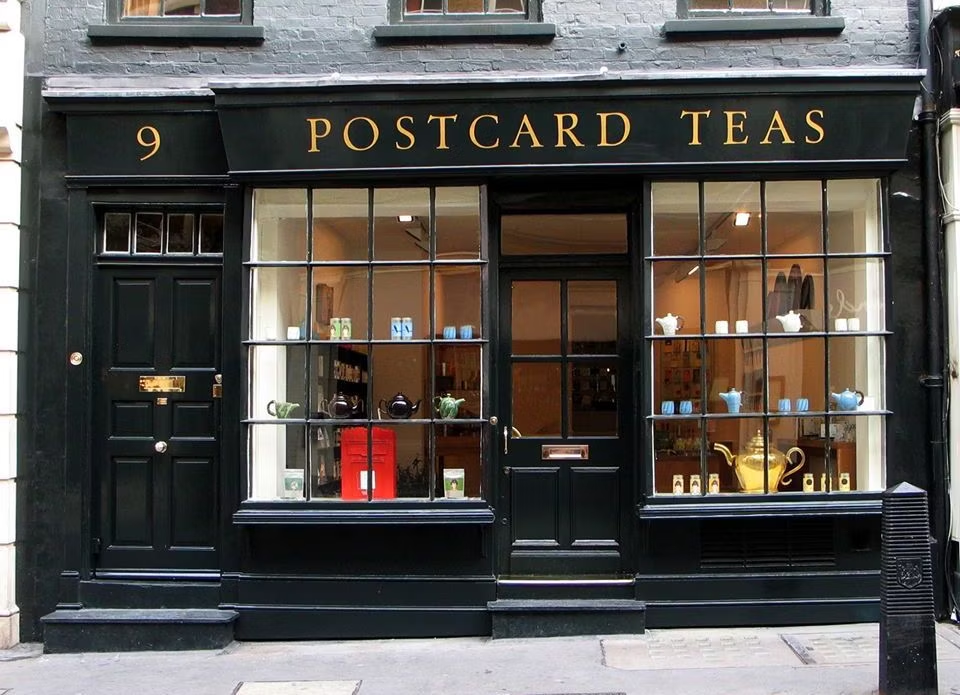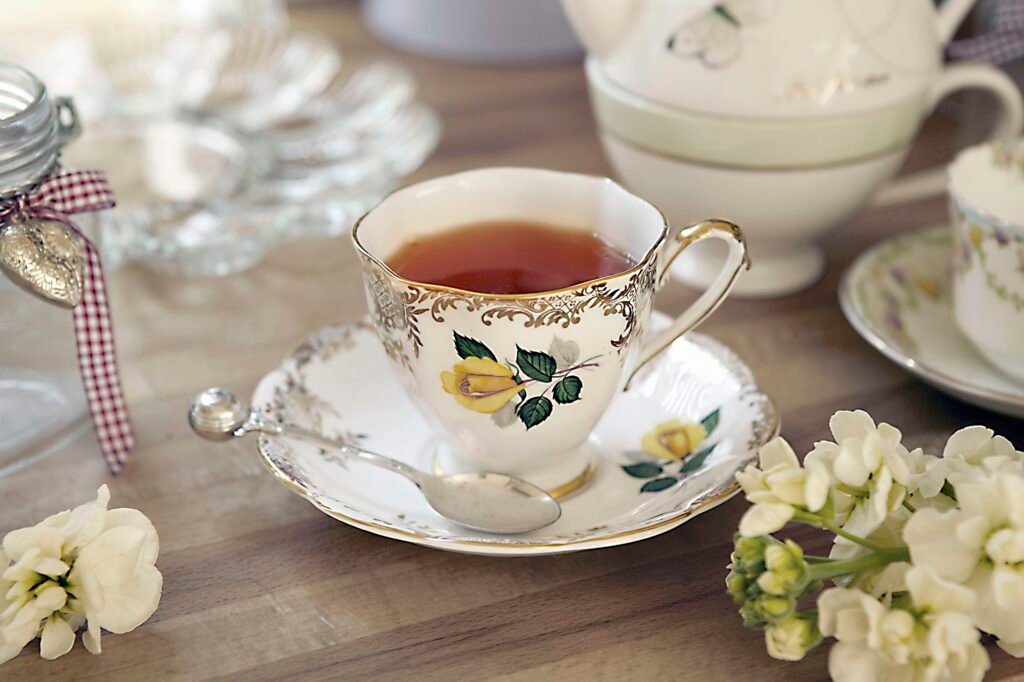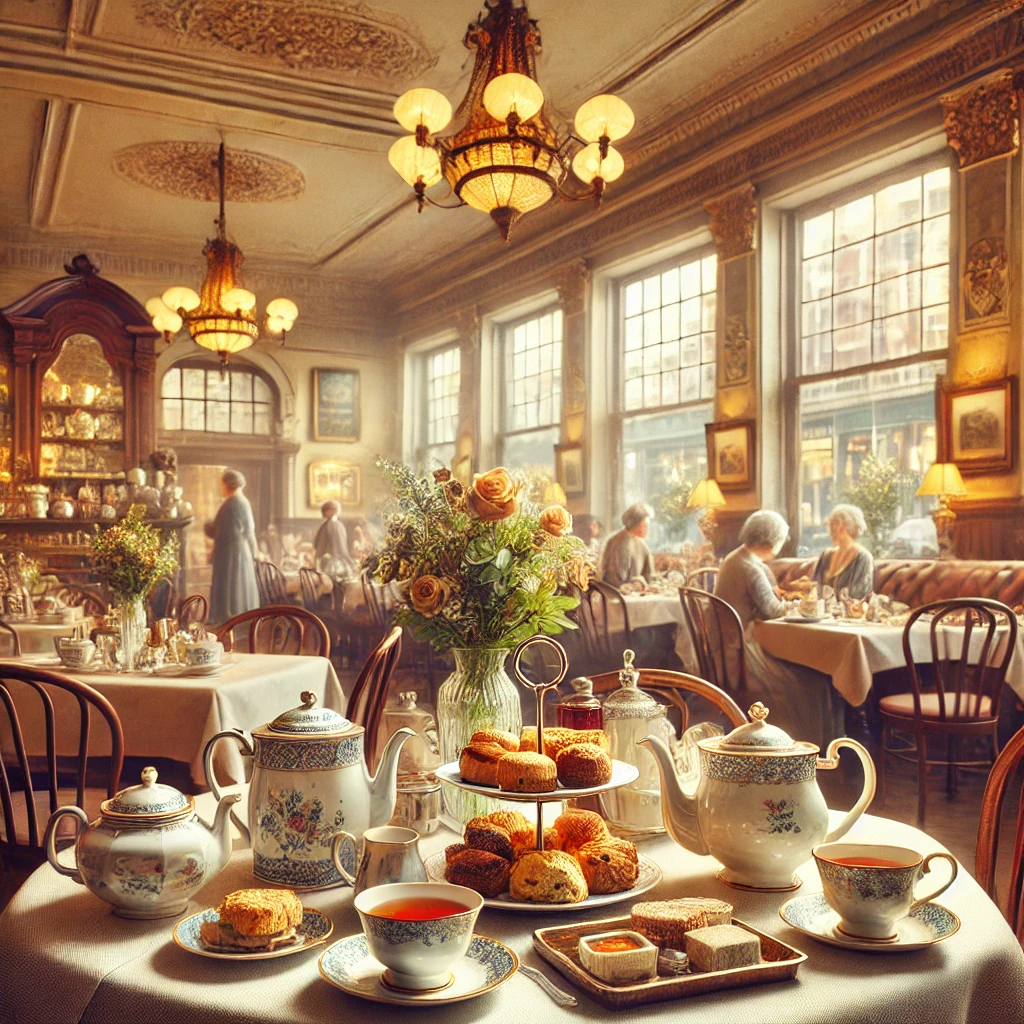A surprising fact is that traditional British tea has a rich history that dates back centuries. This beloved beverage became a staple in British culture, influencing social customs and daily life. The introduction of tea to Britain transformed not only drinking habits but also social interactions.
The history of tea in Britain began in the 17th century when it was first introduced from China. Initially, tea was a luxury item enjoyed by the wealthy. However, as time passed, it gained popularity among all social classes, becoming a common drink in households across the nation. In particular, the rise of tea shops in the 18th century made tea accessible to everyone. These establishments became social hubs where people gathered to enjoy tea and conversation.
Furthermore, the cultural significance of tea in Britain extends beyond mere consumption. Tea drinking rituals, such as afternoon tea, highlight the beverage’s role in social customs. This time-honored tradition involves serving tea with a selection of snacks, often using elegant tea sets and fine tea cups. In effect, these rituals foster connections among friends and family, creating cherished memories.
On the negative side, the history of tea also intertwines with colonialism. The British Empire’s demand for tea led to significant changes in tea production, particularly in India and Sri Lanka. This impact on local economies and cultures raises important discussions about the ethical implications of tea consumption. Even so, the health benefits of tea, such as its antioxidant properties, continue to attract enthusiasts. For instance, many people enjoy various tea recipes that highlight the versatility of tea leaves and tea bags.
In conclusion, traditional British tea represents more than just a drink; it embodies a rich cultural heritage. The journey of tea from its introduction to its current status reflects the evolving tastes and customs of British society. As tea continues to be enjoyed in homes and tea shops, its legacy remains strong.
The Surprising Origins of Traditional British Tea: From Exotic Import to Everyday Ritual
Have you ever wondered how tea became a staple in British culture? The history of tea in Britain reveals its introduction in the 17th century, the rise of a distinct tea culture, and its evolution into a beloved beverage across all social classes. This fascinating journey showcases how tea transformed from an exotic import to a daily ritual for many.
The history of tea in Britain dates back to the early 17th century. The East India Company played a crucial role in introducing tea to England. Initially, tea was a luxury item enjoyed by the aristocracy. The first recorded mention of tea in England occurred in 1658, marking the beginning of its popularity. As time passed, tea became more accessible, leading to the development of a unique tea culture.
The British tea culture evolved significantly over the years. Afternoon tea emerged as a popular tradition in the 1840s, thanks to Anna, the Duchess of Bedford. This delightful ritual included a variety of tea recipes, served with tea cups and accompanied by light snacks. People began to gather in tea shops, enjoying the social aspect of tea drinking. Overall, this tradition emphasized the importance of tea in British society.
Additionally, the rise of specialty tea brands has contributed to the diversity of tea options available today. Loose-leaf teas and artisanal blends have gained popularity among tea enthusiasts. Many people now prefer using tea infusers to brew their favorite blends. The availability of high-quality tea leaves has enhanced the tea experience for many. In truth, the evolution of tea in Britain reflects changing tastes and preferences.
As opposed to merely being a beverage, tea has become a symbol of hospitality and comfort. The tradition of serving tea in elegant tea sets showcases its significance in social gatherings. Furthermore, the health benefits of tea, such as antioxidants, have attracted health-conscious individuals. Many now enjoy tea for its potential heart health improvements. Eventually, tea has solidified its place in British culture, transcending social classes and becoming a beloved drink for all.
What Secrets Lie Behind The Rise Of Tea’s Global Influence
Imagine a bustling tea shop in 19th century Britain, where the aroma of freshly brewed tea fills the air. This scene reflects the profound impact of the British East India Company on tea culture. Their influence transformed tea from a luxury item into a staple beverage enjoyed by all social classes.
The British East India Company played a significant role in the tea trade. They established tea plantations in India and Sri Lanka, which increased tea production. As a result, tea became more accessible to the British public. The introduction of tea to the working class in the 19th century made it a beloved beverage across all social classes. This shift marked a significant change in British society, as tea drinking became a daily ritual for many.
Additionally, the rise of tea shops across Britain contributed to this cultural transformation. These establishments offered a variety of tea leaves and tea recipes, catering to diverse tastes. People began to gather in these tea shops, enjoying the social aspect of tea drinking. The availability of tea bags and loose-leaf options allowed individuals to brew their favorite blends at home. Overall, tea became a symbol of hospitality and comfort, enjoyed in elegant tea sets and served in beautiful tea cups.
In truth, the health benefits of tea also played a role in its popularity. Many people embraced tea for its antioxidants and potential heart health improvements. By the time the 19th century ended, tea had solidified its place in British culture. It transcended social classes, becoming a cherished drink for everyone. The legacy of the British East India Company continues to influence tea culture today, reminding us of tea’s rich history and significance.

Traditional British tea is the Secret to a Perfect Afternoon Delight
Have you ever considered how diverse British tea culture truly is? This culture encompasses various types of tea, popular brands, and the cherished tradition of afternoon tea. Each aspect highlights the significance of tea in daily life.
British tea includes different types such as black tea, green tea, and herbal infusions. Among these, black tea stands out as the most popular choice. Popular brands like Twinings, PG Tips, and Yorkshire Tea offer unique blends and flavors that cater to diverse tastes. The British often enjoy their black tea with milk, a practice that has sparked lively debates about the proper way to prepare tea. This discussion reflects the deep-rooted passion for tea in British society.
The variety of British tea types showcases the rich culture surrounding this beloved beverage. Black tea, green tea, and herbal infusions each bring distinct flavors and benefits. For instance, green tea is known for its health benefits, while herbal infusions provide soothing qualities. Many people enjoy experimenting with different tea recipes, using tea leaves and tea bags to create their perfect brew. The use of a tea infuser enhances the experience, allowing for a more flavorful cup.
In addition to the types of tea, the tradition of afternoon tea plays a significant role in British culture. This delightful ritual often includes a selection of snacks served alongside tea in elegant tea sets. The presentation in beautiful tea cups adds to the experience, making it a cherished social event. Afternoon tea encourages connection among friends and family, creating lasting memories over a shared pot of tea.
Overall, the British tea culture reflects a blend of tradition and modernity. The best tea brands continue to innovate while honoring the rich history of tea. As a matter of fact, the legacy of traditional British tea remains strong, influencing how people enjoy this beverage today. Whether in a cozy tea shop or at home, tea continues to be a symbol of hospitality and comfort.

Discover the Secrets Behind the User’s Notes that will Amaze you
Imagine a cozy afternoon in a quaint British tea shop, where friends gather to enjoy traditional British tea. This cherished social tradition often includes delightful biscuits or scones, enhancing the experience. Afternoon tea serves as a perfect opportunity for connection and conversation.
In British culture, tea is not just a drink; it represents hospitality and warmth. The British consume approximately 100 million cups of tea daily, making it one of the most popular beverages in the UK. This remarkable consumption highlights the significance of tea in daily life.
Afternoon tea typically features a selection of snacks, including biscuits and scones, served alongside a pot of tea. This ritual encourages social interaction, allowing friends and family to bond over shared experiences. The elegant presentation in beautiful tea cups adds to the charm of this tradition.
Moreover, the best tea brands offer a variety of flavors, catering to diverse preferences. People often enjoy experimenting with different tea recipes, using tea leaves and tea bags to create their perfect brew. The use of a tea infuser enhances the flavor, making each cup a delightful experience.
In essence, afternoon tea embodies the rich culture surrounding traditional British tea. It serves as a reminder of the importance of connection and community. As a matter of fact, this tradition continues to thrive, bringing people together in a warm and inviting atmosphere.
Traditional British Tea is Transforming how we Connect and Sip
A surprising fact is that the British tea ceremony emphasizes social interaction and has evolved alongside a growing interest in health benefits, specialty teas, and ethical sourcing. This unique approach to tea drinking fosters connections among friends and family, making it a cherished tradition. Moreover, the rise of specialty tea shops has sparked a renewed interest in loose-leaf teas and artisanal blends.
The British tea ceremony is less formal than its Japanese counterpart. It focuses more on social interaction than strict rituals. This relaxed atmosphere encourages people to gather and enjoy each other’s company over a pot of tea. In this situation, the emphasis on connection enhances the overall experience of drinking traditional British tea. Additionally, the health benefits associated with tea, such as antioxidants and potential heart health improvements, attract many enthusiasts.
Furthermore, the growing interest in specialty tea shops has transformed the tea landscape in the UK. These shops offer a wide variety of loose-leaf teas and artisanal blends, catering to diverse tastes. People now explore different tea recipes, using tea leaves and tea bags to create their perfect brew. The use of a tea infuser allows for a more flavorful cup, enhancing the enjoyment of each sip. On the positive side, this trend promotes ethical sourcing and supports local tea producers.
In like fashion, the tradition of afternoon tea continues to thrive, showcasing the importance of hospitality in British culture. This delightful ritual often includes a selection of snacks served alongside tea in elegant tea sets. The presentation in beautiful tea cups adds to the charm of this experience. As much as the social aspect is vital, the health benefits of tea also play a significant role in its popularity. Many people appreciate the soothing qualities of herbal infusions and the invigorating effects of black tea.
All things considered, the British tea ceremony represents a blend of tradition and modernity. It highlights the significance of social interaction while embracing the evolving landscape of tea culture. As tea continues to be enjoyed in homes and tea shops, its legacy remains strong, influencing how people connect and celebrate over a shared pot of tea.
Discover the shocking truth behind tea’s hidden history
Have you ever considered how colonialism has shaped tea production and its cultural significance in Britain? The influence of colonialism on tea production has sparked conversations about fair trade and ethical sourcing in the tea industry. This discussion highlights the importance of understanding the origins of our beloved beverage.
The impact of colonialism on tea production raises important questions about ethical sourcing. Many tea brands now focus on fair trade practices to ensure that producers receive fair compensation. This shift not only benefits the farmers but also enhances the quality of tea leaves available to consumers. As a result, tea enthusiasts can enjoy their favorite brews while supporting ethical practices. On the positive side, this awareness encourages consumers to choose brands that prioritize sustainability and fair trade.
Events like National Tea Day in the UK celebrate the cultural significance of tea. This special day encourages people to enjoy a cup of traditional British tea while reflecting on its rich history. Celebrations often include tea tastings, workshops, and discussions about the best tea brands. These events foster a sense of community and appreciation for tea culture. In like fashion, they promote the exploration of various tea recipes, allowing individuals to experiment with different flavors and brewing methods.
Moreover, the growing interest in ethical sourcing has led to a rise in specialty tea shops. These shops offer a wide variety of loose-leaf teas and artisanal blends, catering to diverse tastes. Customers can explore unique flavors and learn about the origins of their favorite teas. The use of tea infusers and tea kettles enhances the brewing experience, allowing for a more flavorful cup. As much as the focus on quality is vital, the connection to the producers remains essential.
In essence, the discussions surrounding colonialism and tea production highlight the importance of ethical sourcing. By choosing fair trade options, consumers can enjoy their tea while supporting sustainable practices. Events like National Tea Day serve as a reminder of tea’s cultural importance and its ability to bring people together. As traditional British tea continues to thrive, it remains a symbol of hospitality and connection.
Traditional British Tea is the Ultimate Comfort You Never Knew You Needed
Did you know that traditional British tea has become a symbol of connection and community? This beloved beverage fosters social interactions and creates cherished memories among friends and family. As we explore the rich history and cultural significance of tea, we can appreciate its role in our daily lives.
Traditional British tea encompasses a variety of types, including black tea, green tea, and herbal infusions. Each type offers unique flavors and benefits, appealing to diverse preferences. The best tea brands, such as Twinings and PG Tips, provide quality options that enhance the tea experience. Moreover, the tradition of afternoon tea highlights the importance of social gatherings, where elegant tea sets and beautiful tea cups create a warm atmosphere.
The rise of specialty tea shops has transformed how people enjoy tea. These shops offer loose-leaf teas and artisanal blends, allowing enthusiasts to explore different tea recipes. Additionally, the use of tea infusers and tea kettles enhances the brewing process, resulting in flavorful cups of tea. As a result, tea drinking has evolved into a cherished ritual that transcends social classes.
Furthermore, the health benefits of tea, such as antioxidants and potential heart health improvements, attract many individuals. People appreciate the soothing qualities of herbal infusions and the invigorating effects of black tea. This growing awareness of tea benefits encourages consumers to choose ethically sourced options, supporting fair trade practices in the industry.
In conclusion, traditional British tea represents more than just a drink; it embodies a rich cultural heritage. The journey of tea from an exotic import to a daily ritual reflects the evolving tastes and customs of society. As tea continues to be enjoyed in homes and tea shops, its legacy remains strong, fostering connections and celebrating the joy of sharing a pot of tea.
Enjoy this AI generated podcast of this very article
Uncovering the Hidden Truths of British Tea Culture
Have you ever wondered about the fascinating facts surrounding British tea? Obviously, tea is more than just a drink in Britain. In particular, it represents a rich cultural heritage that spans centuries. The best tea brands, such as Twinings and PG Tips, offer a variety of flavors. Tea benefits include antioxidants and potential heart health improvements. For instance, many people enjoy brewing their favorite blends using tea leaves and tea bags. The tradition of afternoon tea showcases elegant tea sets and beautiful tea cups. This time-honored ritual encourages social interaction among friends and family. Furthermore, tea shops across the UK provide a cozy atmosphere for tea enthusiasts. In essence, British tea culture continues to thrive, bringing people together over shared experiences.
FAQs
1. What is the historical significance of traditional British tea?
Traditional British tea has a rich history that dates back centuries, influencing social customs and daily life.
2. When was tea first introduced to Britain?
Tea was first introduced to Britain in the 17th century, initially as a luxury item for the wealthy.
3. How did tea shops impact British tea culture?
Tea shops emerged in the 18th century, making tea accessible and becoming social hubs for conversation and connection.
4. What is afternoon tea?
Afternoon tea is a time-honored tradition involving serving tea with snacks, fostering connections among friends and family.
5. How did colonialism affect tea production?
Colonialism significantly impacted tea production, especially in India and Sri Lanka, raising ethical sourcing discussions.
6. What types of tea are popular in Britain?
Popular types of tea in Britain include black tea, green tea, and herbal infusions, each with distinct flavors.
7. What role do specialty tea brands play?
Specialty tea brands offer diverse options, enhancing the tea experience and catering to various tastes and preferences.
8. How does traditional British tea symbolize hospitality?
Traditional British tea represents hospitality, often served in elegant tea sets during social gatherings and events.
9. What health benefits does tea provide?
Tea offers health benefits, such as antioxidants and potential heart health improvements, attracting health-conscious individuals.
10. How does the British tea ceremony differ from others?
The British tea ceremony emphasizes social interaction, contrasting with more formal ceremonies, thus fostering connections among people.
“”
Come Visit Us
We have three fantastic locations we’d love to invite you to! If you’re in the Chicagoland area, you can come chill with us at either our Grayslake or Schaumburg locations. Alternatively, if you’re in Wisconsin, stop by and visit us at our Kenosha lounge. Please note that you must be 21+ to enter with a valid ID. We hope to see you soon!


